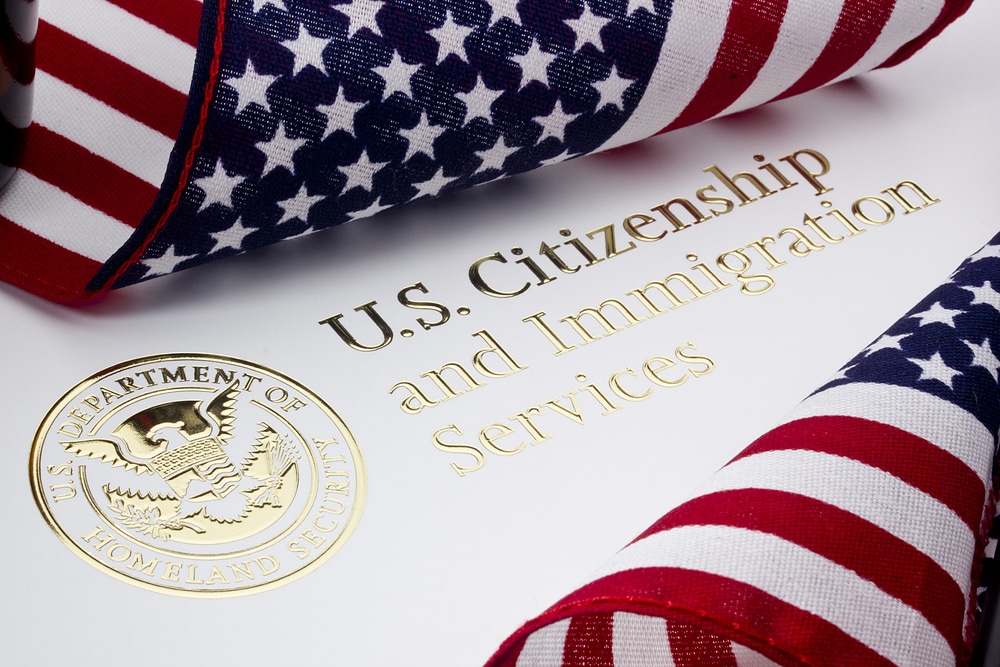We get questions daily about how the naturalization process works for same-sex couples. Here, our Hialeah citizenship lawyer answers the most common inquiries we receive.
As a firm that focuses on both immigration and LGBTQ law, we have a unique perspective to offer guidance on how to best navigate U.S. law regarding same-sex marriage and naturalization. Our Hialeah citizenship lawyer, Rolando Casais, Jr., is a member of the American Immigration Lawyers Association, Vice Chair of the Budget and By-Laws Committee, and sits on the LGBTQ Committee. He is also a member of the Miami-Dade Gay & Lesbian Chamber of Commerce, so he is well-versed in helping same-sex couples through the naturalization process.
These are some of the most frequently asked questions regarding becoming a naturalized U.S. citizen through same-sex marriage.
Can A Same-Sex Spouse Of A U.S. Citizen Apply For Naturalization?
Yes, same-sex marriage is treated equally as opposite-sex marriage in immigration law. If you were married to your spouse in a country that recognizes same-sex marriage, your marriage is legally recognized in the U.S., and your spouse can apply to become a lawful permanent resident. After being a resident for three years, they can apply to become a naturalized U.S. citizen.
What Are The Eligibility Requirements To Apply For Naturalization?
The naturalization eligibility requirements for a same-sex couple are the same as those for an opposite-sex couple. To apply for naturalization through marriage, you must meet the following criteria:
- Be at least 18 years old at the time of filing the application
- Hold Lawful Permanent Resident status (LPR) for at least three years at the time of filing the application
- Continue to remain married to the resident spouse through the Oath of Allegiance ceremony
- Live in a marital union for at least three years before filing the application
- Be physically present in the United States for at least 18 months out of the three years immediately preceding the application
- Be able to understand the English language, including reading, writing, and speaking
- Demonstrate knowledge of United States civics
- Demonstrate good moral character for at least three years before filing the application
- And others
What Is The Process For Becoming A Naturalized Citizen Through Same-Sex Marriage?
Once you have met the above eligibility requirements, the next step is to complete Form N-400, the Application For Naturalization. You may fill out a paper application and send it to the USCIS with your filing fee or apply online, just know that there are some exceptions to qualifying for the online application.
Next, fingerprints are taken, and a background check is initiated; then, you can set an appointment for your exam and interview. The exam consists of an English language test and a civics test. It is used to evaluate the applicant’s written and spoken English language skills and their knowledge of basic U.S. history and government.
If you pass the exam and the interview, your application will be approved, and you can take the Oath of Allegiance. This ceremony is an integral part of the naturalization process and must be completed to receive a Certificate of Naturalization and to become a U.S. citizen.

Do You Need A Hialeah Citizenship Lawyer For Naturalization Through Same-Sex Marriage?
Having a legal representative assist you through your naturalization journey is optional, but we recommend that you have one because the process can be complex. Your attorney can help you fill out your application, prepare for your interview, and even sit with you during your interview. Knowing what to expect will help you pass your evaluation and be on your way to U.S. naturalization.
Our immigration attorneys at Casais & Prias are highly skilled in the naturalization process and can offer the guidance you need. Contact our firm today to discuss your application and how we can help you.



















